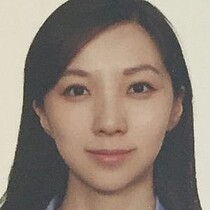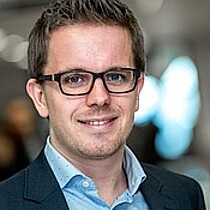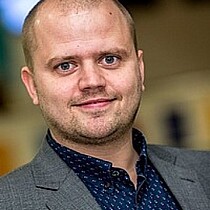

Article: Friday, 26 April 2024
Businesses are keen to know why customers often repeatedly delay getting on with doing quick online tasks like booking appointments, placing orders, or submitting reviews and feedback. Knowing how to increase customer engagement at moments like these is what prompted PhD candidate Libby Chun to measure how businesses can lessen repeated acts of procrastination – simply by asking consumers to think about the time a task might take. Her paper, Mind over minutes: The effect of task duration consideration on task delay, co-authored with Dr Christophe Lembregts and Dr Bram Van den Bergh at Rotterdam School of Management, Erasmus University (RSM), has been published in the Journal of Consumer Psychology, and also won the prestigious ACR/Sheth Dissertation Award in 2021 for public purpose consumer research. The results of their research suggest this easy-to-implement method could increase customer engagement. There are also benefits for governmental agencies that might otherwise be unaware of this intervention – which is why that aspect was included in the study, commented Libby Chun.
In marketing, it’s accepted that letting customers know how long a task will take reduces the delay in doing it, but that effect hadn’t yet been measured until Libby Chun and her co-researchers conducted experiments with tasks like reviewing data management policies and submitting tax forms. These online tasks lasted between two-and-a-half minutes to an hour.
Procrastinating with tasks like these is a widespread and well-known problem; it affects individuals, organisations and businesses because it causes delays. “We recognised that asking people to consider the duration of a task is a popular strategy for overcoming procrastination, but there was limited empirical evidence supporting its effectiveness. So our study aimed to explore whether emphasising the duration of the task genuinely reduces the delay. Our goal was to offer practical insights for improved productivity and to help businesses aiming to enhance customer engagement,” said Libby Chun.
“Our research reveals that prompting consumers to think about how long a task might take, either through providing an estimate or asking the consumer to estimate it, does indeed lessen the delay in doing that task, regardless of how long it takes,” she said.

“When consumers consider how much time it will take, this triggers their procedural knowledge – the knowledge that they already possess of how to do the task. The ease of evaluating the duration is found to be a key factor in this process,” she explained.
“When individuals consider the duration of relatively short tasks of up to an hour that can be done in one sitting, it significantly reduces their tendency to procrastinate. This positive effect is attributed to a shift in mindset. Consumers go from contemplating 'whether to do it now' to realising they already know 'how to do it'. This is the effect that contributes to an increase in the rate of the task being initiated.”
The results of this paper suggest this is an easily implemented method that could increase customer engagement.
The insights that Libby Chun and her co-researchers got from their research are beneficial for businesses as well as for policy makers and governmental organisations that want to encourage timely behaviour such as scheduling medical visits or submitting tax and financial information. The information is also useful for operational managers who want to enhance the management of tasks to make sure they are completed on time.
“Our research holds valuable implications for businesses aiming to improve customer engagement. It shows how important it is to include information about the duration of a task into your online interactions – for example when you ask for customer feedback, or invite customers to make an appointment, or ask for consent on a form,” said Libby Chun.

People recognise the importance of considering how long the task will take but they still often neglect it when procrastinating. “We explored this inconsistency and found that encouraging people to contemplate the duration of a task does indeed reduce the number of times they repeat their delaying tactics, and improve the rate of actually completing the tasks.”


Read the full paper here: Mind over minutes: The effect of task duration consideration on task delay


Science Communication and Media Officer

Corporate Communications & PR Manager
Rotterdam School of Management, Erasmus University (RSM) is one of Europe’s top-ranked business schools. RSM provides ground-breaking research and education furthering excellence in all aspects of management and is based in the international port city of Rotterdam – a vital nexus of business, logistics and trade. RSM’s primary focus is on developing business leaders with international careers who can become a force for positive change by carrying their innovative mindset into a sustainable future. Our first-class range of bachelor, master, MBA, PhD and executive programmes encourage them to become to become critical, creative, caring and collaborative thinkers and doers.
